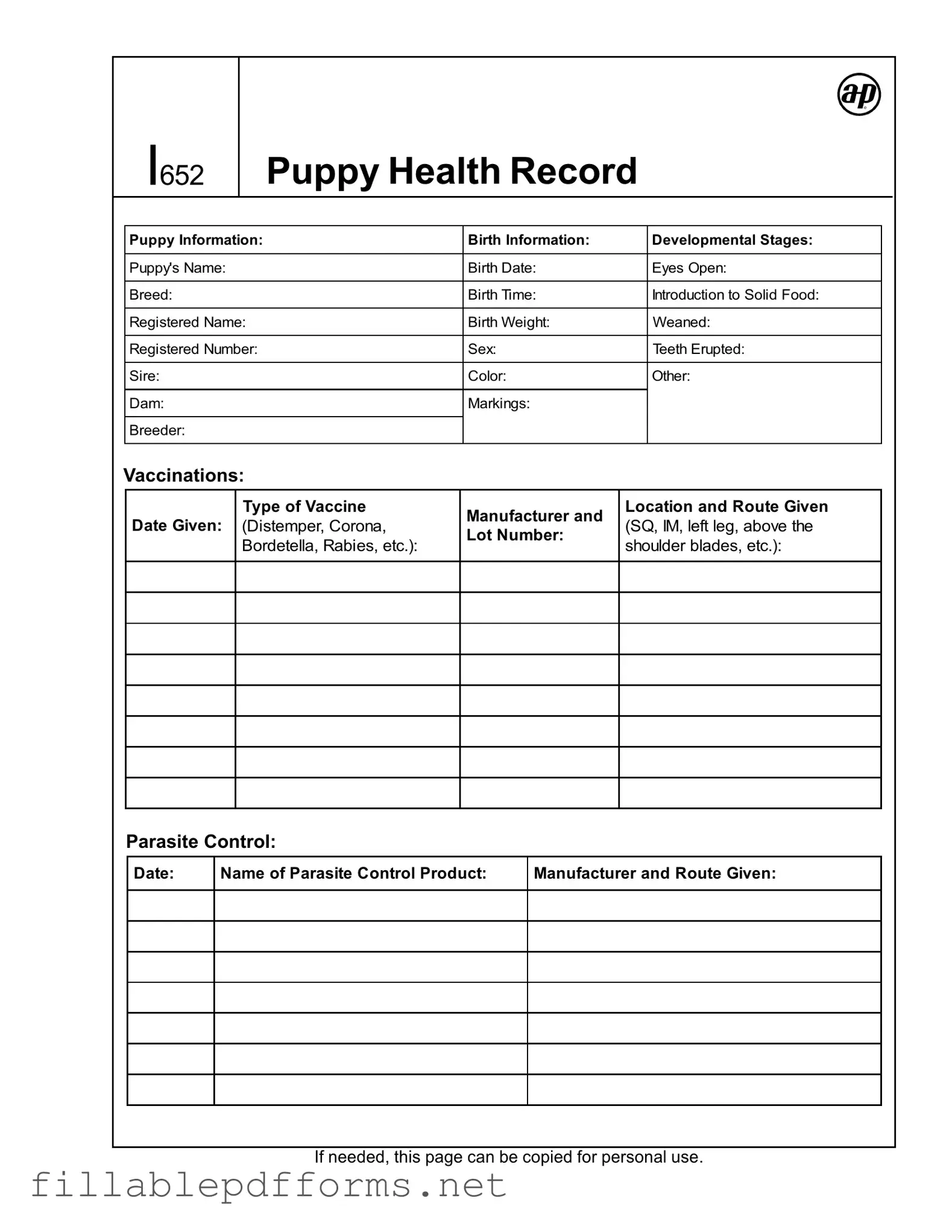Puppy Health Record PDF Template
The Puppy Health Record form serves as a comprehensive document designed to track essential health information for your new puppy. This record includes vital details such as vaccination dates, developmental milestones, and any medical procedures performed. Keeping this form updated not only helps ensure your puppy's health but also provides a valuable history for future veterinary visits.
Launch Editor Here

Puppy Health Record PDF Template
Launch Editor Here

Launch Editor Here
or
▼ Puppy Health Record PDF
Almost there — finish the form
Complete Puppy Health Record online fast — no printing, no scanning.